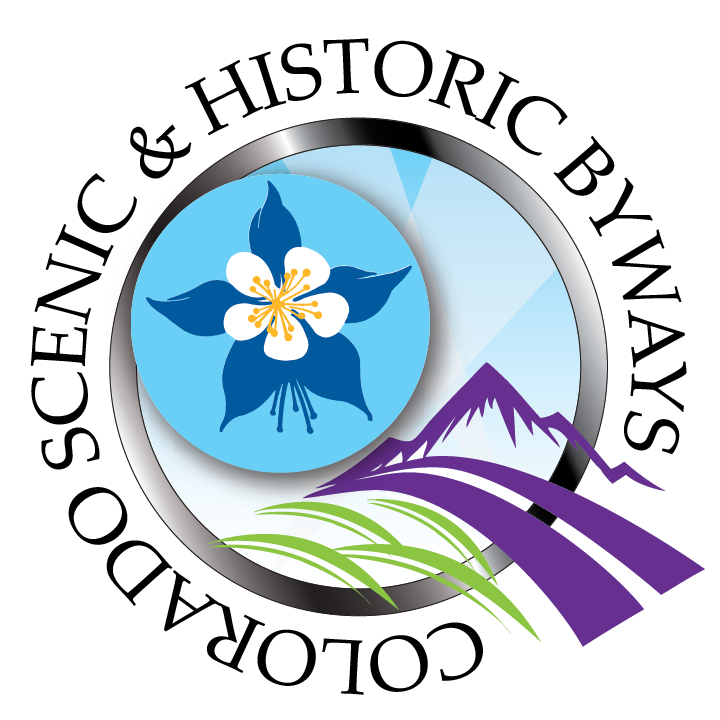Connecting to land and community through our stories
By Linda Lidov, Keep It Colorado
There is no word for "conservation" in the Ute language. But protecting lands and waters, accepting their gifts, and giving back to them are values that are built into the Ute culture and way of life.
These were a few themes at Connecting Land and Community through Our Stories, a day-long convening at Fozzie's Farm in southwest Colorado. Montezuma Land Conservancy (MLC) hosted the event in partnership with the Telluride Institute and the Ute Mountain Ute Tribe. The idea was to bring together people from different communities for conversations about how we as humans relate to nature, and what connecting to the natural world means to us individually and collectively.
The day began with guests gathered in a circle, where they reviewed agreements about creating a safe space for discussion and listening with intention to others’ stories. Travis Custer, executive director of MLC, shared an overview of the land trust’s conservation work and his vision of the future of conservation.
Setting the stage for how the day’s discussions might unfold, Travis shared his own story of growing up next to a creek and a forest. They were his daily escape from life and formed an early understanding of what connecting to nature feels like. The land around him was destroyed when an apartment complex was built in its place. “I understood then that land can go away and be lost forever. It’s important to understand our relationship with the land so that we can protect it,” he shared.
Members of the Ute Mountain Ute Tribe could deeply relate to that sense of connection, loss and changing times. Elders described their memories of growing up on tribal lands in Towaoc and Cortez (southwestern Colorado) and in Westwater Canyon, Allen Canyon and White Mesa (southeastern Utah).
Loretta Posey described how her family hunted deer and rabbits, and dried and stored the meat in gunny sacks for winter. They herded sheep and grew vegetables in a large garden. As a young child she learned how to do things herself – from chopping wood, building fires and carrying water to making her own toys and dolls. She is sad that today kids spend their time playing video games. “They don’t know how to do things for themselves,” she said.
Alfred Wall, Jr. was raised by his grandparents. His aunts and uncles taught him the bear dance, singing and the Ute language. “It’s important to learn from our ancestors. It’s how we tell stories,” he said. Alfred attended boarding school. When it was shut down, he went to public school in Cortez. When the highway came through, it was the first time he’d seen pavement, and he remembers the joy of riding his bicycle on those smooth sidewalks. Then came homes with electricity and running water. But the changes had consequences. “We’re having tornadoes in the southwest now. People are abusing the land,” he said. He shows his respect to the land by giving a prayer every time he drives over Wolf Creek Pass.
“We breathe life into culture and honor our sacred places
by sharing stories.
In this way our culture stays alive.”
Other elders' stories echoed similar themes. They all harkened to a time when living with nature was just part of living. Passing those stories down through the generations helps people remember and learn.
Regina Lopez Whiteskunk, MLC's cross-cultural programs manager, pointed to music as the universal language of telling stories. Song, Regina says, helps people speak out for the land, the plants and the animals that can’t speak for themselves.
After lunch, guests gathered in a healing circle. In turn, they shared about themselves – how they identify, where they were born, who their people are, what their relationship is with the land, and the heaviness they carry, among other things. In a show-and-tell, each shared an item representing their culture, family or connection to the land. Rocks. Sprigs of juniper. Family photos. Strands of sweet grass. Quince fruit. A bear tooth. Each object told a unique tale – and insights about how we each relate to nature.
At the day's end, chef M. Karlos Baca of the Southern Ute Nation served an Indigenous meal prepared with ingredients from the surrounding land: fire-roasted pumpkin bisque, red chili-braised elk and Ute Mountain corn cake. The meal began with a Ute prayer of thanks, led by Norman Lopez.
With intentions to further understand a shared vision for connections to the land and with each other, MLC plans to create more opportunities to bring people back for more exploration, dialogue and togetherness as part of an ongoing process.
For MLC, this redefinition of conservation begins by engaging a wide variety of people throughout the community who live, work and play on the southwest landscape. MLC's focal points are to build relationships, foster conversations and connection, share space, and think creatively about programming and land conservation projects. Fozzie’s Farm is a centerpiece of this work. The farm consists of 83 acres that are permanently conserved and protected and, per the wishes of the original landowner, are used for education and outreach. MLC hosts groups ranging from students and researchers to tribal community members. It also creates hands-on learning opportunities around agricultural irrigation, water conservation, ecological restoration and wildlife monitoring.
“We don’t know
what the future looks like.
We have to build it.”
MLC's goals are to involve people across the community in conservation in new ways, with an eye toward equity. Travis points to the conservation movement’s long history of removing people from their land – and the need to now build trust with tribal communities and find ways to move forward with healing through reconciliation and connection. One starting place is simply knowing that there's a universal desire to protect these places, and acknowledging that conservation doesn't benefit everyone the same way. “Our connection to nature is hardwired. But our experiences and access are different,” he said.
Travis believes that one way to get there is to move conservation away from being strictly transactional, and toward being more relational. And that takes time, as well as creativity and collaboration. “We don’t know what the future looks like. We have to build it."
Elroy Lehi grew up believing that every person has gifts, and he was taught that we must all share our gifts. His gifts are in math, art, relating to other people and, as he recently discovered, identifying egrets.
“One day my mom was washing dishes, and from the window, she saw white birds on horses. She asked what they were. I said they were egrets, and they come from another country. I don’t know how I knew, but it was my gift,” Elroy said. He feels that we often don’t recognize our own gifts, and we must look for them.
Elroy lives in White Mesa, Utah, located within a section of the Ute Mountain Ute Tribe reservation, and grew up in nearby Allen Canyon. The outdoors and nature were woven into every aspect of daily life.
In summertime his family would retreat to the summer lands high in the mountains, and in winter came back to the lower lands. For subsistence they grew corn and vegetables, hunted rabbit and elk, and picked chokecherries and pinons. They cooked their food on a firepit and retrieved water from the stream one-quarter mile away. They lived in tents and shade houses constructed of trees.
They were also artists; his mother made baskets out of sumac, and today his sisters do too, adorning their baskets with bird and butterfly designs. Elroy’s passion is doing bead work and painting pottery using colors of the sunset.
“The land keeps giving back to us. We honor it by passing it down
to the next generation
like our ancestors
passed it down to us.”
Spending so much time outdoors in his youth, Elroy developed an innate respect for animals and nature. “We talk to the land. We respect it. When it rains, plants sprout, and we use them for eating and for healing. And the land keeps giving back to us. We honor it by passing it down to the next generation like our ancestors passed it down to us,” he shared.
Elroy often goes back to check on the property where he spent his youth. He sees changes that unsettle him. Fencing now separates some of the lands his grandparents gave to his parents, who gave the land to him and his siblings. He doesn’t see many people there anymore. But he takes joy in sharing his memories with the people he meets, and in continuing to find ways to connect with the land.
For the past seven years Elroy has worked for the Tribe’s transportation department, driving community members to medical appointments at hospitals in Utah, Colorado and Arizona. It gives him plenty of time for conversation while enjoying the large landscapes of the southwest.
In contrast to his younger self, who didn’t talk much, today’s Elroy has learned to share his gifts, share his perspectives and be open with others. “I spend time with people. I help them. I view everyone as my family,” he said. That easy ability to connect with and tell his story to others is itself a gift – one that he will hopefully continue to share.




















